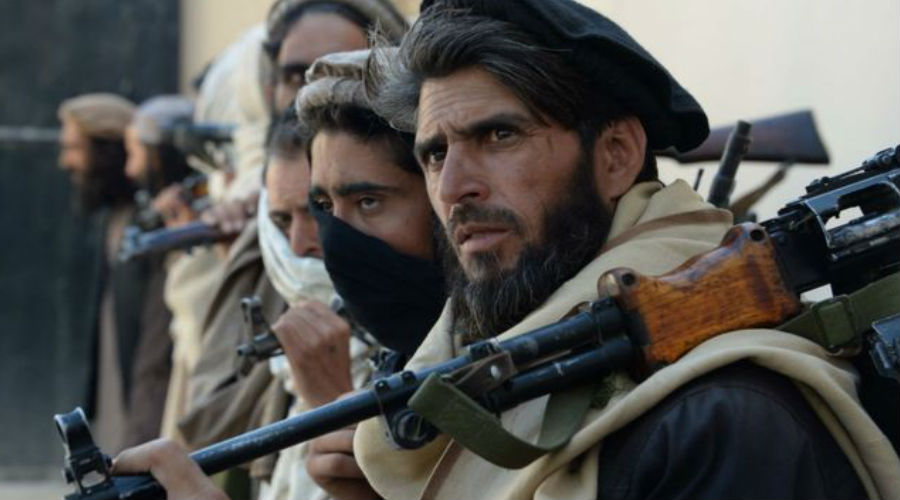Instability in Afghanistan has increased and escalated in the recent period due to the rise of terrorist attacks, especially by the Taliban and ISIS against Afghan government forces. As a result, the Afghan government launched and continues to carry out counter-strikes against terrorists' positions and elements. Overall, the escalation has caused an increasing civilian casualties with 1662 killed and 3581 others injured during the first half of this year, according to a recent report released by the United Nations on July 17, 2017.
The Taliban in particular appears to be seeking to ratchet up
its terror attacks in the coming period, a development that was evidenced in
its claim of responsibility for a July 24 suicide attack at the western part of
Kabul that killed and injured 70 people. Moreover, the movement ensures to task
militants belonging to the families of its commanders with such attacks.
This shows that the Taliban does not only aim to respond to recent
attacks- in which around 70 of its fighters were killed in mid July in the
provinces of Nangarhar, Paktia and Badghis- but also to consolidate its
internal cohesion after the recent phenomenon of defections threatened to
weaken and divide the movement into small terrorist groups.
Significant Shifts
Within this context, a recent suicide attack was carried out by Abdur Rahman,
also known as Hafiz Khalid, who is the son of Taliban leader Mullah Haibatullah
Akhundzada, in province of Helmand in southern Afghanistan on July 20 targeting
an Afghan military base in the town of Gereshk, north of the provincial capital
Lashkar Gah. The attack represents a significant shift in the tactics of
terrorist organizations because it was the first time a son of an existing
leader of such an organization carried out a suicide attack. It is especially
significant because, according to several views, that sons of the leaders take
up only organizational and administrative responsibilities.
Some organizations even ensure to keep the families of its militants away from
the scene of operations and battlefields. Several reports noted that
confrontations broke out between elements of terror groups operating in Syria
when they attempted to secure a safe exit from conflict zones such as Aleppo
for their families.
This, perhaps, is one of the reasons why a number of al-Qaida
commanders fled to Iran after the US launched a war on Afghanistan in 2001,
despite sectarian/religious disagreements with Iran. Their aim was to protect
their families. However, Iran later sought to use the families as leverage
against the organization itself to prevent it from attacking Iranian interests
inside and outside Iran, and even the interests of the home countries of its
elements.
Hence, it can possibly be argued that a Taliban leader allowing his son
to carry out a suicide attack indicates that the movement seeks to carry
out changes in its tactics to escalate attacks against the Afghan government
forces and perhaps other parties making diligent efforts to reduce its
influence in some provinces.
Potential Consequences
The increasing severity of attacks carried out by the Taliban, including the
most recent one by Akhundzada, came at a critical timing for the movement. On
the one hand, the armed confrontations with the US-backed government forces are
increasing. On the other, the Taliban’s competition with its rival ISIS is
heating up, especially after the latter could recently expand into new areas
and seize control of more territory from its rival. For instance, ISIS captured
the Tora Bora cave complex in the Pachir Aw Agam District of Nangarhar in mid
June 2017 before the Afghan government forces expelled its militants inflicting
massive casualties on the group.
The significant escalation of Taliban’s terrorist attacks, and the expected
shifts in its extremist approaches, can possibly impose potential consequences
of which the following stand out:
1- Bolstering Leadership’s Position. Several views indicate that the
Taliban leader Mullah Haibatullah Akhundzada, has escalated the
movement’s attacks and allowed his son to carry out a recent high-profile one,
to bolster his position within the movement. His effort is driven in particular
by a severe competition with some prominent leaders that continue to accuse him
of opening communication channels with foreign parties which, in their view,
pose threats to the movement itself.
2- Continued Approach. The recent attack might push other Taliban
elements belonging to the families of key leaders to adopt the same approach;
carrying out suicide attacks against the government forces in the coming
period. This is driven in particular by the massive losses inflicted recently
on the movement in strikes conducted by the government forces and US troops.
Figures released by the United States Air Forces Central Command on July 18
show that the US-led international coalition had escalated its air campaign
against the Taliban and ISIS-Khorasan forces dropping or expending 1,634
munitions, such as missiles and bombs, in Afghanistan in 2017, three times the
amount it dropped there in 2016.
3- Curbing Defections. Since the days of its former leader Mullah
Akhtar Mohammad Mansour, the Taliban has been suffering internal divisions
that led to a mass defection of its elements to ISIS. The defectors justified
their shift by a decline in the movement’s activity. This means that the
Taliban’s escalation of attacks may contribute towards curbing internal
defections in the coming period.
However, overall, this development does not negate the fact that the Taliban continues to face no easy challenges inside Afghanistan. This is primarily due to two main factors. The first one is the Unites State’s increasing interest in the global war on terrorism in Afghanistan and other states. The second factor is the the North Atlantic Treaty Organization (NATO) plans to increase their role in this war. During the military alliance’s recent summit in May 2017 in Brussels, Belgium, NATO allies involved in the alliance’s Resolute Support Mission (RSM) agreed to send more troops to Afghanistan in the coming period.


